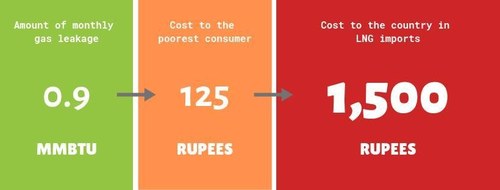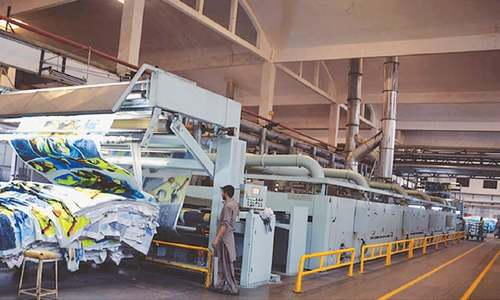ISLAMABAD: Up to 145 per cent increase in prescribed gas prices with effect from July 1, 2019 has been sought to meet revenue requirements of the gas utilities for the next financial year, it emerged on Sunday.
The Sui Northern Gas Pipelines Limited (SNGPL) and the Sui Southern Gas Company Limited (SSGCL) have filed their petitions for tariff increase at a time when the Pakistan Tehreek-i-Insaf (PTI) government was still grappling with the political fallout of the 35pc increase it had allowed in October 2018.
In the process, four managing directors of the two companies have since been removed.
The Lahore-based SNGPL that serves Punjab and Khyber Pakhtunkhwa has demanded an average increase of Rs723 to Rs1,224 per MMBTU (Million British Thermal Unit), suggesting a rise of almost 144pc with effect from July 1 for the financial year 2019-20, said an announcement by the Oil & Gas Regulatory Authority (Ogra).
Ogra receives petitions from gas utilities seeking increase in prices from July 1
The regulator said the SNGPL had submitted the revised petition on March 19 with the request for an “increase of Rs722.51 per MMBTU in its normal business of natural gas w.e.f July 1, 2019”. As such, the SNGPL’s average prescribed price per unit would rise to Rs1,224 from its existing rate of Rs501.19.
On top of this, the company has also demanded about Rs111.32 per MMBTU under the head of diversion of RLNG to domestic consumers and Rs6,086 per MMBTU on account of LPG business.
Interestingly, the cost of SNGPL’s gas has increased by Rs66 per unit to reach Rs566.97 per unit or about 14pc when compared to its existing average prescribed price of Rs501 per unit but it was trying to recover shortfalls in revenue requirements of two years, including that of the current fiscal year.
Seeking increase in average prescribed price, the SNGPL gave a break up saying it be compensated for Rs62.3 per MMBTU, Rs98 per unit for operating cost, Rs70 per unit for guaranteed return on assets and Rs23per unit for late payment surcharge and short-term borrowing. The company demanded Rs381.54 per unit shortfall during fiscal year 2017-18 and Rs56.95 per unit for shortfall in 2018-19.
Separately, the other gas company, the SSGCL, has sought about Rs106.54 increase in its average prescribed price of Rs591.67 per unit to reach Rs698.21.
The cost of SSGCL’s gas has estimated an increase of about Rs50 per unit to Rs642 per unit from its existing prescribed price of Rs592 per unit. It sought an increase of Rs64 per unit increase in operating cost, Rs17 per unit depreciation and Rs22 per unit increase for return on assets.
Domestic gas prices are linked to international oil prices under various petroleum policies.
Prime Minister Imran Khan has repeatedly said the gas companies were losing more than Rs50 billion to theft and mismanagement.
Under the law, the regulator is required to hold public hearings on the request of gas companies and then forward its determination to the government latest by May 20.
The government is required under the law to seek any change, if it considers so, to the proposed increase for various consumer categories within 40 days to Ogra for notification with effect from July 1 but without affecting the overall determined revenues.
The gas prices are changed twice a year – on the first of July and January. Because of political transition, the last gas price increase came into effect on September 27, 2018 instead of July 1. The 35pc average price increase of September was affected with a target to recover additional revenue of Rs116 billion, while high-consumption domestic consumers faced the highest 143pc increase.
Ogra had originally recommended an 186pc increase for the first two slabs of domestic consumers and a 30pc increase for most of other categories in industry, commercial, power sectors, etc. The government, however, diverted the burden from domestic consumers to electricity, industry, commercial and fertiliser sectors that would indirectly spread out to all consumers and categories.
*Published in Dawn, March 25th, 2019*
































